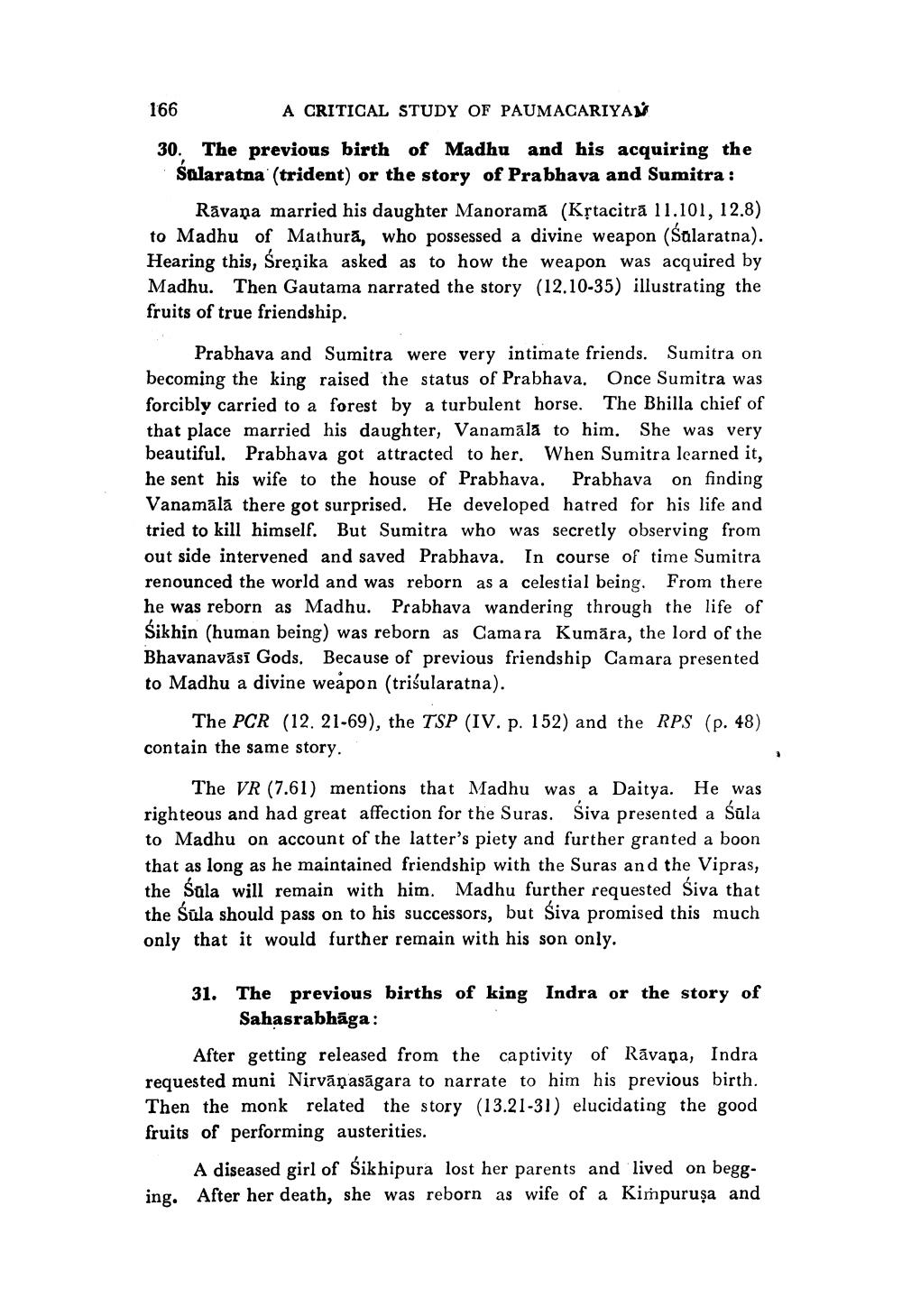________________
166
A CRITICAL STUDY OF PAUMACARIYAN
30. The previous birth of Madhu and his acquiring the Salaratna (trident) or the story of Prabhava and Sumitra :
Rāvana married his daughter Manorama (Kệtacitra 11.101, 12.8) to Madhu of Mathură, who possessed a divine weapon (Salaratna). Hearing this, Śreņika asked as to how the weapon was acquired by Madhu. Then Gautama narrated the story (12.10-35) illustrating the fruits of true friendship.
Prabhava and Sumitra were very intimate friends. Sumitra on becoming the king raised the status of Prabhava. Once Sumitra was forcibly carried to a forest by a turbulent horse. The Bhilla chief of that place married his daughter, Vanamāla to him. She was very beautiful. Prabhava got attracted to her. When Sumitra learned it, he sent his wife to the house of Prabhava. Prabhava on finding Vanamāla there got surprised. He developed hatred for his life and tried to kill himself. But Sumitra who was secretly observing from out side intervened and saved Prabhava. In course of time Sumitra renounced the world and was reborn as a celestial being. From there he was reborn as Madhu. Prabhava wandering through the life of Sikhin (human being) was reborn as Camara Kumāra, the lord of the Bhavanavāsī Gods. Because of previous friendship Camara presented to Madhu a divine weapon (trisularatna).
The PCR (12. 21-69), the TSP (IV. p. 152) and the RPS (p. 48) contain the same story.
The VR (7.61) mentions that Madhu was a Daitya. He was righteous and had great affection for the Suras. Siva presented a Sūla to Madhu on account of the latter's piety and further granted a boon that as long as he maintained friendship with the Suras and the Vipras, the Sula will remain with him. Madhu further requested Siva that the Sūla should pass on to his successors, but Śiva promised this much only that it would further remain with his son only.
31. The previous births of king Indra or the story of
Sahasrabhāga: After getting released from the captivity of Rāvana, Indra requested muni Nirvāṇasāgara to narrate to him his previous birth. Then the monk related the story (13.21-31) elucidating the good fruits of performing austerities.
A diseased girl of Sikhipura lost her parents and lived on begging. After her death, she was reborn as wife of a Kimpuruşa and




